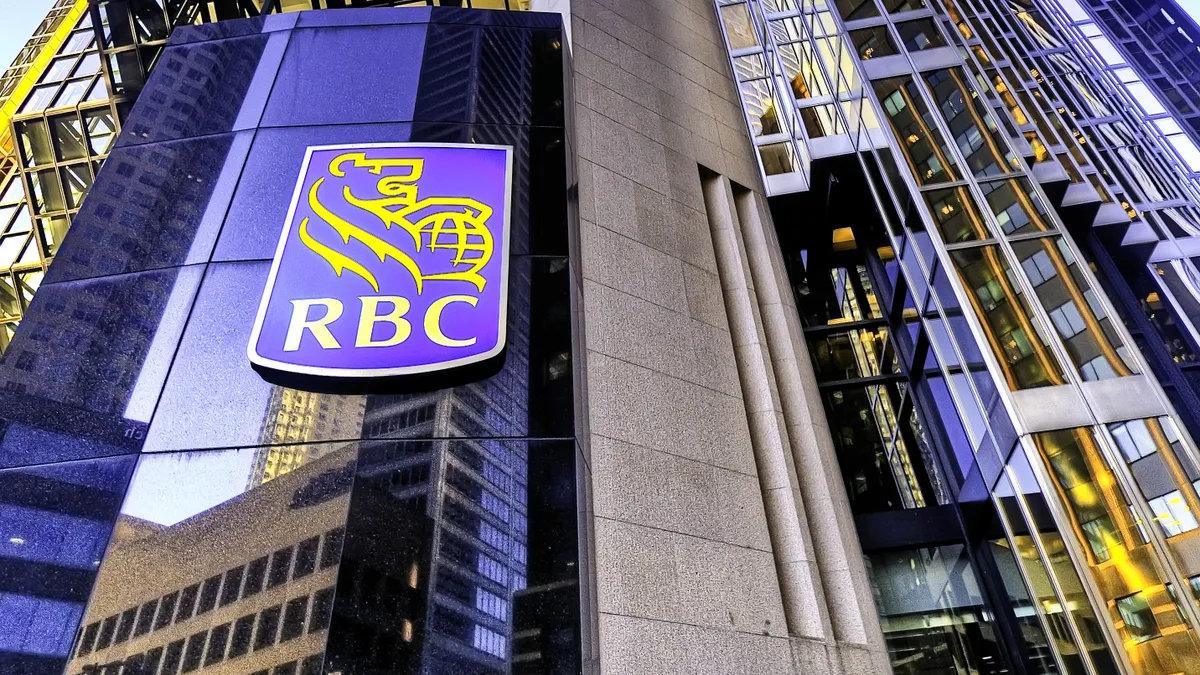Royal Bank of Canada infused $2.95 billion into its U.S. subsidiary City National so far this year to boost its capital, according to Bloomberg and Reuters.
City National disclosed the numbers in a quarterly call report filed with U.S. regulators earlier this week, which showed most of the capital infusion came with RBC purchasing debt securities with unrealized losses from City National. The Los Angeles-based lender realized a loss of $2.74 billion on available-for-sale-debt securities in the three months ending in September, Bloomberg reported.
City National also posted a net loss of $1.59 billion for the first three quarters of the year, Reuters noted.
The Toronto-based lender in September announced its plans to strengthen City National's balance sheet, presumably improving margins, but did not disclose the investment amount or prices paid for debt securities, according to Bloomberg. However, the company did say that realized losses on debt holdings would be eliminated at the RBC consolidated level, according to Bloomberg.
City National’s sale of debt securities was “ongoing balance sheet management” and the bank reinvested “most of the proceeds of this intercompany transaction in new securities for our liquidity and investment portfolio, which should benefit net interest margins,” Kelly Coffey, CEO of City National said in an emailed statement to Bloomberg on Tuesday. “The capital injection we benefited from is intended to further strengthen the capital and liquidity position of our balance sheet, while also being used to pay down higher-cost borrowing.”
"The necessity of RBC's intervention is a negative read-through, highlighting CNB's struggles to navigate through a tough operating environment," KBW analyst Mike Rizvanovic told Reuters. He estimated approximately $7 billion of low-yielding debt securities were transferred from City National, noting that the return on the invested capital should see some positive impact following the move.
Many regional U.S. banks have faced capital pressures as rapidly rising interest rates led to unrealized losses on debt securities, pressuring net interest margins between their asset earnings and liability costs.
RBC made a $2 billion capital infusion into City National in the third quarter, atop a $950 million contribution in the first quarter, the call report showed.
RBC acquired City National in 2015 for $5 billion in cash and shares to fortify its U.S. retail and wealth management business. Over the last year, the Canadian bank reported $229 million in adjusted net income from its U.S. unit, including a $12 million loss in RBC’s third quarter which ended in July.
Speaking at an industry conference in September, RBC CFO Nadine Ahn said City National did not prioritize building its U.S. deposits. This exacerbated the bank’s struggle amid growing interest rates and in the aftermath of the failures of Signature Bank and Silicon Valley Bank.
The same month, RBC appointed former Fifth Third Bank CEO Greg Carmichael as the board’s executive chair of City National beginning Oct. 2 to help strengthen the lender’s platform and drive growth.
The $96 billion asset bank is part of RBC’s long-term growth strategy in the U.S., the Canadian bank’s “second home market,” Dave McKay, president & CEO of RBC said in a statement at the time.














